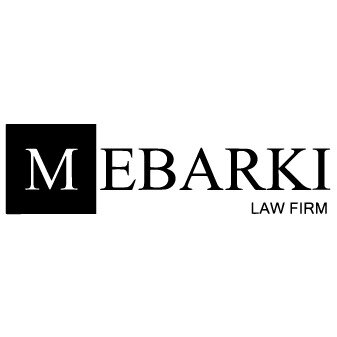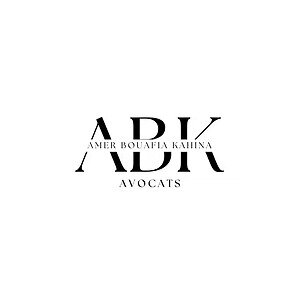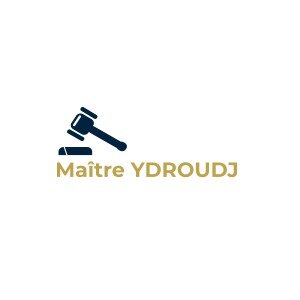Best Mining Law Lawyers in Algeria
Share your needs with us, get contacted by law firms.
Free. Takes 2 min.
Or refine your search by selecting a city:
List of the best lawyers in Algeria
About Mining Law in Algeria
Mining law in Algeria governs the exploration, exploitation, and management of the country's mineral resources. With its rich endowment of mineral deposits, including iron ore, phosphate, gold, zinc, and rare earth elements, Algeria has developed a legal framework to manage resource extraction. The principal goal of Algerian mining law is to regulate activities in the mining sector, ensure the sustainable development of resources, and protect the rights and interests of both the government and investors. The Mining Law of 2014 (Law No. 14-05) and its implementing decrees form the foundation for mining activities, complemented by environmental, tax, and investment legislation.
Why You May Need a Lawyer
Navigating mining law in Algeria can be complex, especially for those unfamiliar with the legal or regulatory environment. You may require a lawyer for various reasons, such as:
- Applying for mining exploration or exploitation permits
- Drafting and negotiating contracts with government agencies or private companies
- Ensuring compliance with environmental regulations and obtaining necessary approvals
- Resolving disputes over land access or ownership rights
- Handling regulatory investigations or compliance issues
- Understanding foreign investment limitations or partnership structures
- Dealing with issues related to taxation and customs on exported minerals
- Advising on mergers, acquisitions, or joint ventures in the mining sector
- Assisting with due diligence before entering mining projects
- Managing labor and community relations, including social responsibility obligations
Local Laws Overview
The primary law governing mining in Algeria is Law No. 14-05 of February 24, 2014, on mining activities. This law and its regulations set out the procedures for obtaining mining rights, the obligations of mining title holders, and mechanisms for state participation. Key aspects include:
- Licensing: Mining rights are granted in stages, including prospecting, exploration, and exploitation permits. These rights are typically awarded through competitive bidding or administrative procedures.
- State Participation: The Algerian government may exercise rights of participation in mining ventures, especially in strategic minerals.
- Environmental Obligations: Mining operators must prepare environmental impact assessments and comply with restoration and rehabilitation requirements.
- Investment Rules: Foreign investors may be subject to specific restrictions, joint venture requirements, or partnership obligations under Algeria's broader investment laws.
- Taxation and Royalties: Mining activities are subject to taxes, customs duties, and royalties payable to the state.
- Community Rights: Mining operations must respect local land rights and contribute to local development. Compensation may be required for land use and impacts on communities.
- Dispute Resolution: Disputes may be resolved through local courts or, in some cases, through international arbitration.
Frequently Asked Questions
What are the main mineral resources found in Algeria?
Algeria has significant reserves of iron ore, phosphate, gold, zinc, lead, copper, and various industrial minerals. There is also growing interest in rare earth elements and lithium.
Who can apply for mining permits in Algeria?
Both Algerian and foreign individuals or entities can apply for mining permits, though specific restrictions and partnership requirements may apply, especially for foreign investors or sensitive minerals.
What is the process for obtaining a mining permit?
The process involves several stages: prospection authorization, exploration permit, and exploitation license. Each stage requires submission of an application, supporting documentation, and compliance with regulatory procedures.
Are there restrictions on foreign ownership in the mining sector?
Yes, foreign participation is regulated and may require joint ventures with Algerian partners. The state often retains participation rights in strategic projects, and sector-specific investment guidelines may apply.
What are the key environmental regulations for mining projects?
Mining projects must conduct environmental impact studies, obtain approval from relevant authorities, and adhere to restoration and rehabilitation requirements to protect natural habitats and local communities.
How are royalties and taxes structured for mining operations?
Royalties are calculated based on mineral type, production volume, and market value. Taxes and customs duties also apply, and terms are detailed in both mining and fiscal legislation.
What rights do local communities have in mining regions?
Local communities have land use rights and are entitled to consultation in the permitting process. Mining companies must provide compensation for land and resources used and may be required to contribute to regional development.
What happens if there is a dispute over mining rights?
Disputes can be resolved by the national courts or, when applicable, through arbitration procedures agreed upon in contracts. Algeria is also a party to several international arbitration conventions.
What agencies oversee mining activities in Algeria?
The main regulator is the Ministry of Energy and Mines, supported by agencies such as the National Agency for Mining Activities (ANAM), which handles permitting and sector monitoring.
Can mining permits be transferred or sold?
Yes, but transfers require government approval and must comply with regulatory procedures. Transfers are subject to due diligence, tax obligations, and may trigger preemption rights for the state.
Additional Resources
If you need guidance or support regarding mining law in Algeria, the following resources can be valuable:
- Ministry of Energy and Mines - the principal government entity supervising the mining sector.
- National Agency for Mining Activities (ANAM) - responsible for granting mining permits and overseeing sector compliance.
- National Agency for the Valorization of Mining Resources (ANVREDET) - advisory and research functions related to mining.
- Algerian Bar Association - to locate a legal professional with mining law expertise.
- Chamber of Mines and Industry - an association representing mining sector actors.
- Local universities and research institutes - often publish guides, research, or seminars on mining issues.
Next Steps
If you need legal assistance in Algerian mining law, consider taking the following steps:
- Clearly identify your legal issue or objective, such as permit acquisition or dispute resolution.
- Gather all relevant documents, contracts, and communications related to your mining activities.
- Contact a qualified lawyer with expertise in mining law and experience in the Algerian legal system.
- Schedule a consultation to discuss your circumstances and assess your options.
- Engage with local regulatory agencies for official guidance on permits and compliance requirements.
- Stay updated on legislative changes that could affect your mining operations or investments.
- If you do not speak French or Arabic, consider hiring a translator or an attorney fluent in your language for clearer communication.
Timely and professional legal advice is crucial in the mining sector, as regulatory compliance and negotiation can be complex. Early engagement with a legal expert will help you navigate Algerian mining laws and protect your interests.
Lawzana helps you find the best lawyers and law firms in Algeria through a curated and pre-screened list of qualified legal professionals. Our platform offers rankings and detailed profiles of attorneys and law firms, allowing you to compare based on practice areas, including Mining Law, experience, and client feedback.
Each profile includes a description of the firm's areas of practice, client reviews, team members and partners, year of establishment, spoken languages, office locations, contact information, social media presence, and any published articles or resources. Most firms on our platform speak English and are experienced in both local and international legal matters.
Get a quote from top-rated law firms in Algeria — quickly, securely, and without unnecessary hassle.
Disclaimer:
The information provided on this page is for general informational purposes only and does not constitute legal advice. While we strive to ensure the accuracy and relevance of the content, legal information may change over time, and interpretations of the law can vary. You should always consult with a qualified legal professional for advice specific to your situation.
We disclaim all liability for actions taken or not taken based on the content of this page. If you believe any information is incorrect or outdated, please contact us, and we will review and update it where appropriate.
Browse mining law law firms by city in Algeria
Refine your search by selecting a city.












